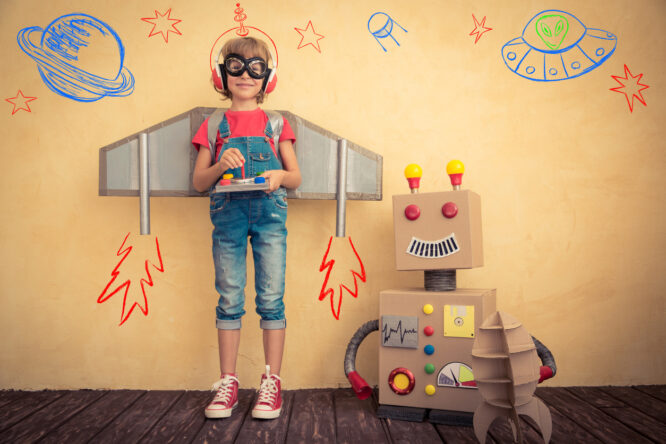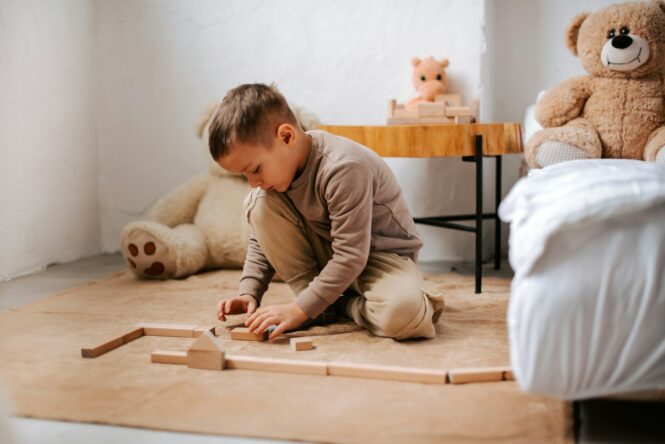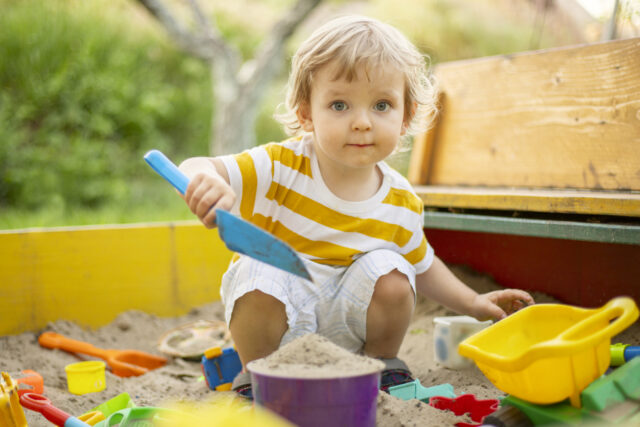Imagination often gets lumped in with creativity or intelligence, as if it only belongs to kids who write perfect stories or ace art projects.

However, the truth is that imagination isn’t just a talent or a personality trait, it’s a tool—and it’s one every child deserves the chance to develop, regardless of whether they’re seen as gifted, academic, or artistic.
Research has repeatedly shown that imagination helps kids build confidence, solve problems, and connect with the world in meaningful ways. It’s not about being the best at something; it’s about having the freedom to explore, play, and see things from different angles. These are just a few of the reasons imagination matters just as much for the daydreamers as it does for the logic-lovers.
1. It helps kids express emotions in healthy ways.

When kids can’t quite put their feelings into words, imagination gives them another outlet. Through drawing, storytelling, role play, or even just daydreaming, they can process what’s going on internally in a way that feels natural and safe.
They don’t need to be creating masterpieces—it’s about emotional release. A child drawing monsters after a tough day might be working through fear or anger. Imagination offers a space where big feelings can breathe without needing to be perfectly explained.
2. It builds problem-solving skills.

Imaginative thinking isn’t just about make-believe; it’s the foundation of flexible problem-solving. When kids pretend a cardboard box is a spaceship or invent new rules to a game, they’re learning how to adapt and think creatively in real time.
That kind of thinking translates into everyday situations too. Whether they’re figuring out how to fix a toy or handle a tricky social situation, imaginative kids often have more mental tools at their disposal because they’ve already practiced looking at problems from different angles.
3. It encourages curiosity and questioning.

Kids with active imaginations tend to ask more questions—not just the “what” but the “why” and the “what if.” And that kind of curiosity leads to deeper learning and a more engaged approach to the world around them.
Imagination invites kids to wonder, and in that wondering, they start connecting ideas and forming their own opinions. That’s not just valuable in school—it’s valuable in life. It sets the groundwork for independent thinking and resilience later on.
4. It builds confidence without needing to be perfect.

In imaginative play, there are no grades, no right answers, and no one telling you how it “should” be done. That freedom is powerful, especially for kids who feel anxious about performance or who don’t always thrive in traditional classroom settings.
Imagination gives them space to lead, to try things, and to get things wrong without any real consequence. That kind of risk-taking, even in play, helps kids build confidence they can carry into other parts of their life.
5. It strengthens social skills.

Playing make-believe with other people requires compromise, communication, and empathy. One minute you’re a pirate captain, the next you’re negotiating who gets to hold the treasure map. It’s a crash course in cooperation without anyone noticing it’s a lesson.
Even shy kids can shine in imaginative play, finding roles that suit them and helping to shape the story. These shared experiences help them understand how to navigate relationships and respect different perspectives from an early age.
6. It offers comfort and escape during tough times.

When life feels uncertain or overwhelming, imagination becomes a safe place to retreat to. Kids going through big changes—like divorce, moving, or starting school—often find comfort in their inner worlds, where they feel more in control.
It doesn’t mean they’re ignoring real life; it’s about giving the brain a break. Imaginative play lets kids process big emotions at their own pace, in a world they understand and create themselves. It can be soothing in ways that even adults can relate to.
7. It boosts language and communication.

Inventing stories, naming characters, and narrating pretend adventures builds vocabulary in a way that’s totally natural. Kids who engage in regular imaginative play often develop stronger language skills because they’re constantly stretching their communication muscles.
Whether it’s pretending to be a news reporter or hosting a tea party, they’re learning how to describe, explain, and connect through language. And because it’s fun, it doesn’t feel like work—it just clicks.
8. It helps kids understand other people better.

Putting yourself in someone else’s shoes is a core part of imaginative play. Whether a child is pretending to be a doctor, a superhero, or even their own parent, they’re practicing empathy by trying on different roles and figuring out what it might feel like to be someone else.
That kind of perspective-taking is incredibly important for emotional development. It helps kids recognise that other people have feelings, thoughts, and experiences different from their own, which is the foundation of kindness and understanding.
9. It nurtures independence.
 Source: Unsplash
Source: Unsplash When a child creates a game, builds a world, or writes their own comic, they’re taking ownership of something. It’s theirs. And that sense of control can be incredibly empowering, especially in a world where a lot of things are decided for them.
Imagination gives kids space to lead, explore, and make choices without needing adult direction. That kind of freedom helps them build a sense of independence and confidence in their own thinking.
10. It supports mental flexibility later in life.

The ability to adapt to change, think creatively, and approach problems with a fresh perspective doesn’t magically appear in adulthood; it starts with imaginative thinking in childhood. Kids who are encouraged to use their imagination often grow into adults who can think outside the box.
That’s not just useful in creative careers—it’s useful in any area of life. Whether you’re managing relationships, switching jobs, or figuring out how to fix a leaky tap, mental flexibility is a skill that starts young and pays off forever.
11. It doesn’t require money, status, or “special” intelligence.

You don’t need expensive toys or access to elite programmes to have a strong imagination. Kids can create whole worlds out of sticks, cardboard, or an empty hallway. It’s not about what they have; it’s about how they think and feel.
That makes imagination one of the most inclusive, accessible tools for learning and growth. No matter their background, learning style, or personality, every child can benefit from it. It levels the playing field in the best possible way.
12. It makes childhood more joyful and memorable.

At the end of the day, imagination makes everything more fun. Whether it’s pretending the floor is lava or inventing a family of talking squirrels, these moments become the memories that stick. They’re not just cute, they’re formative.
Imagination brings colour to everyday life and gives kids a sense of wonder that they’ll carry into adulthood. It reminds them—and us—that not everything has to be logical or productive to be worthwhile. Sometimes, it’s the playful stuff that matters most.




